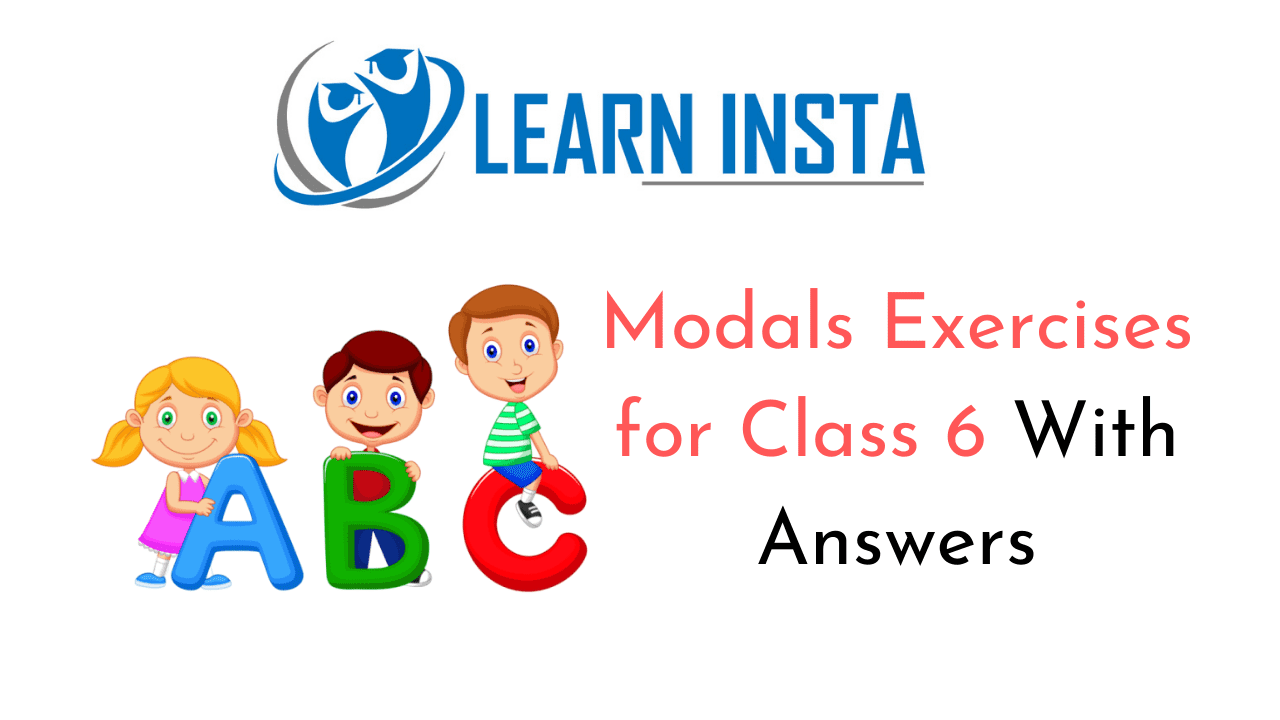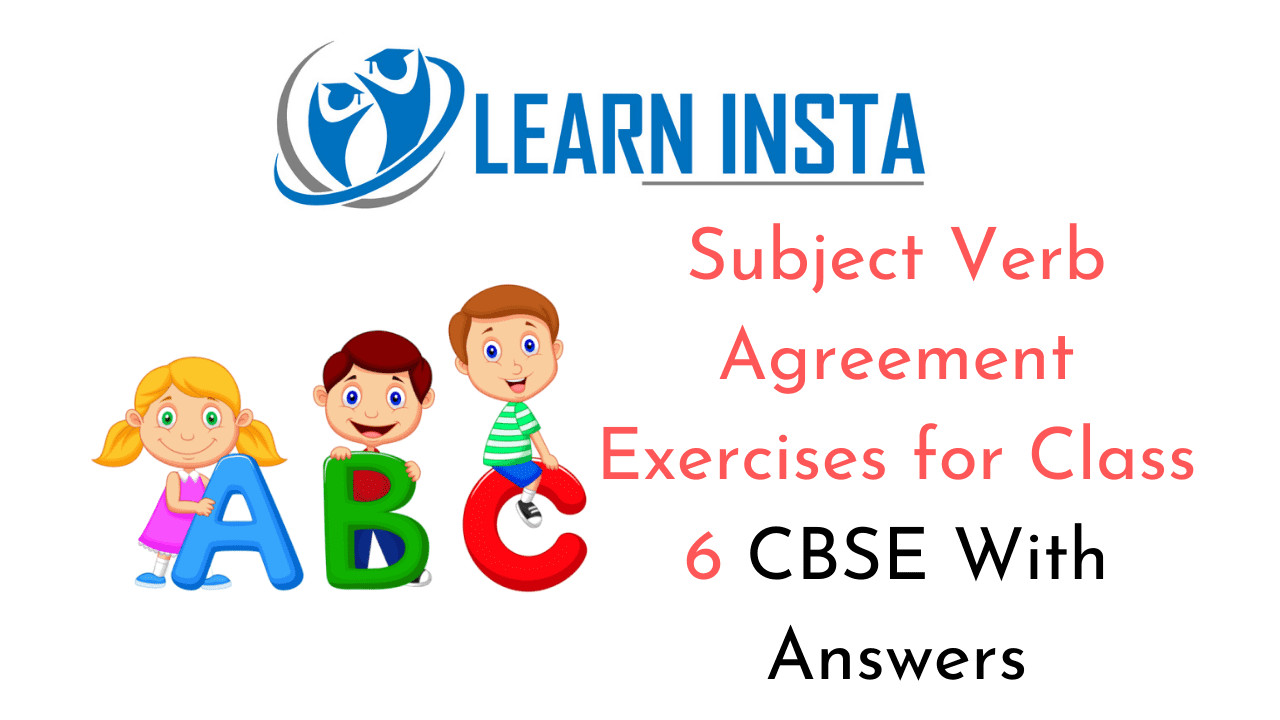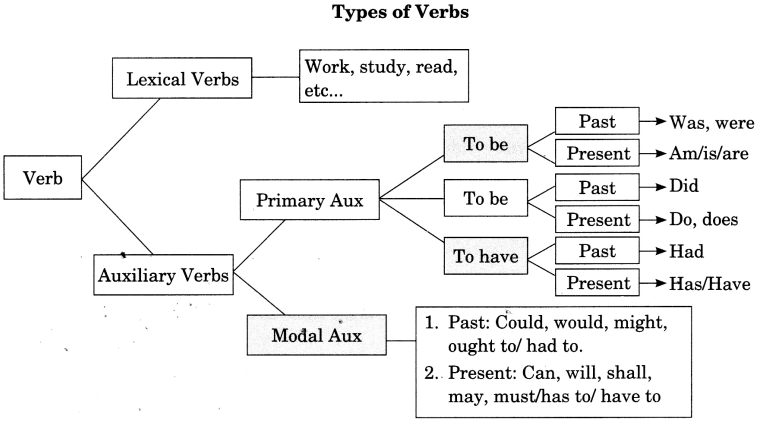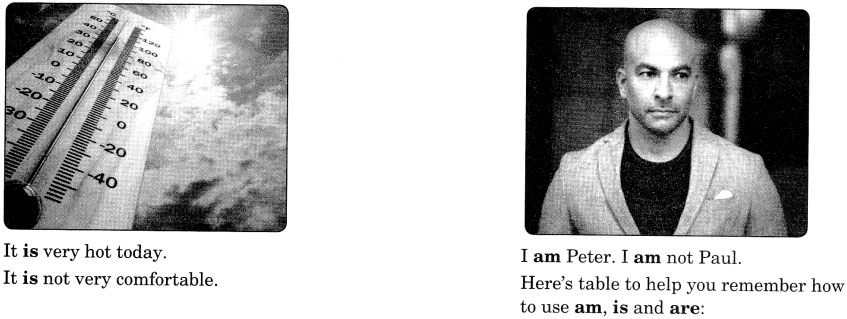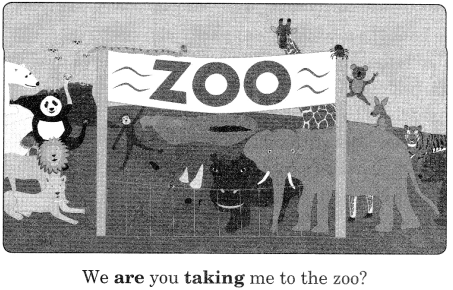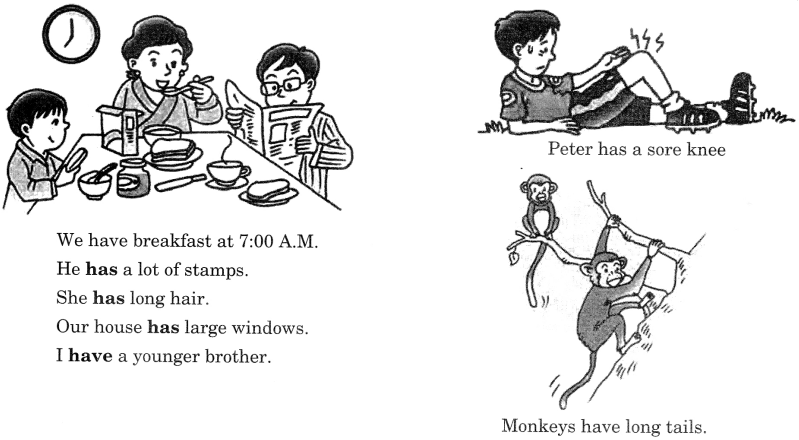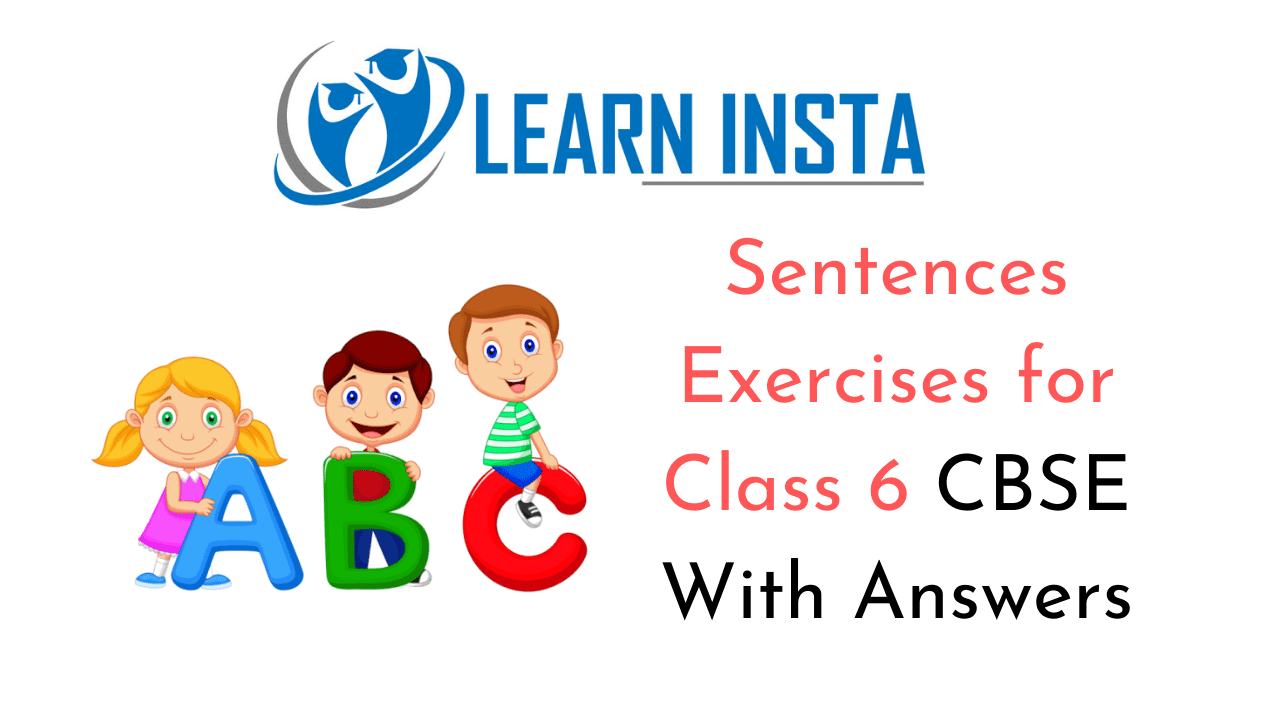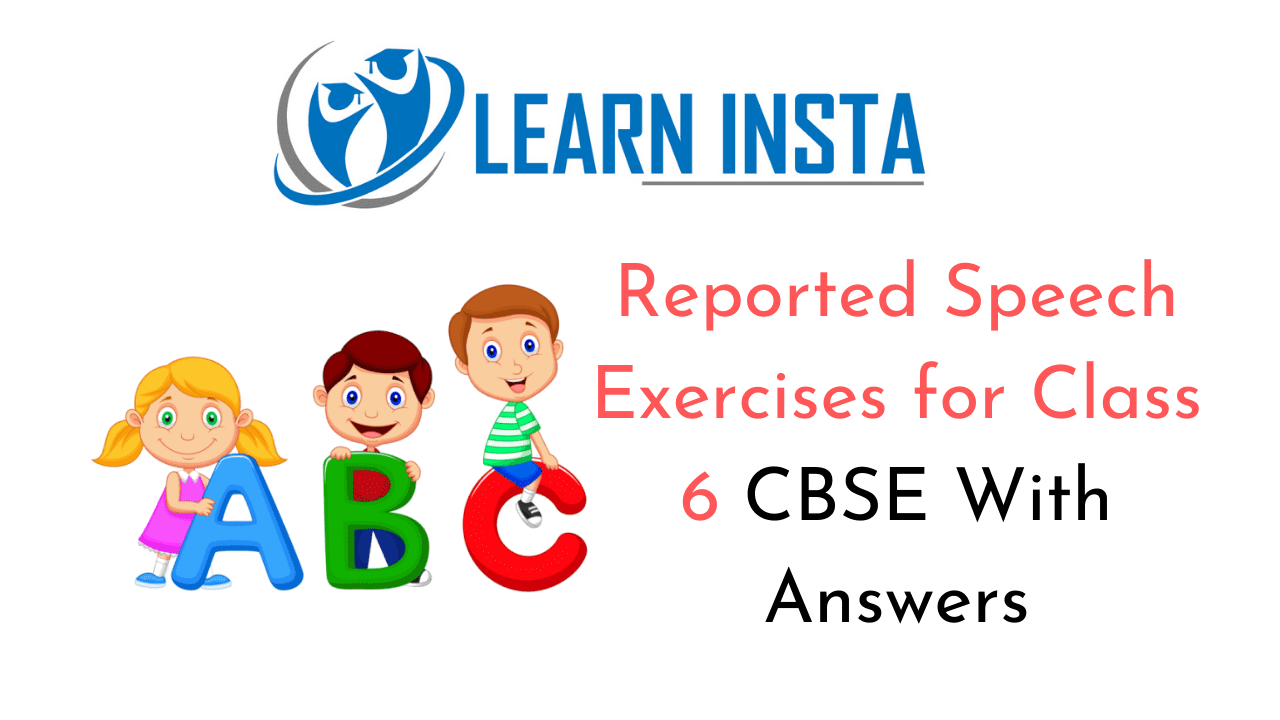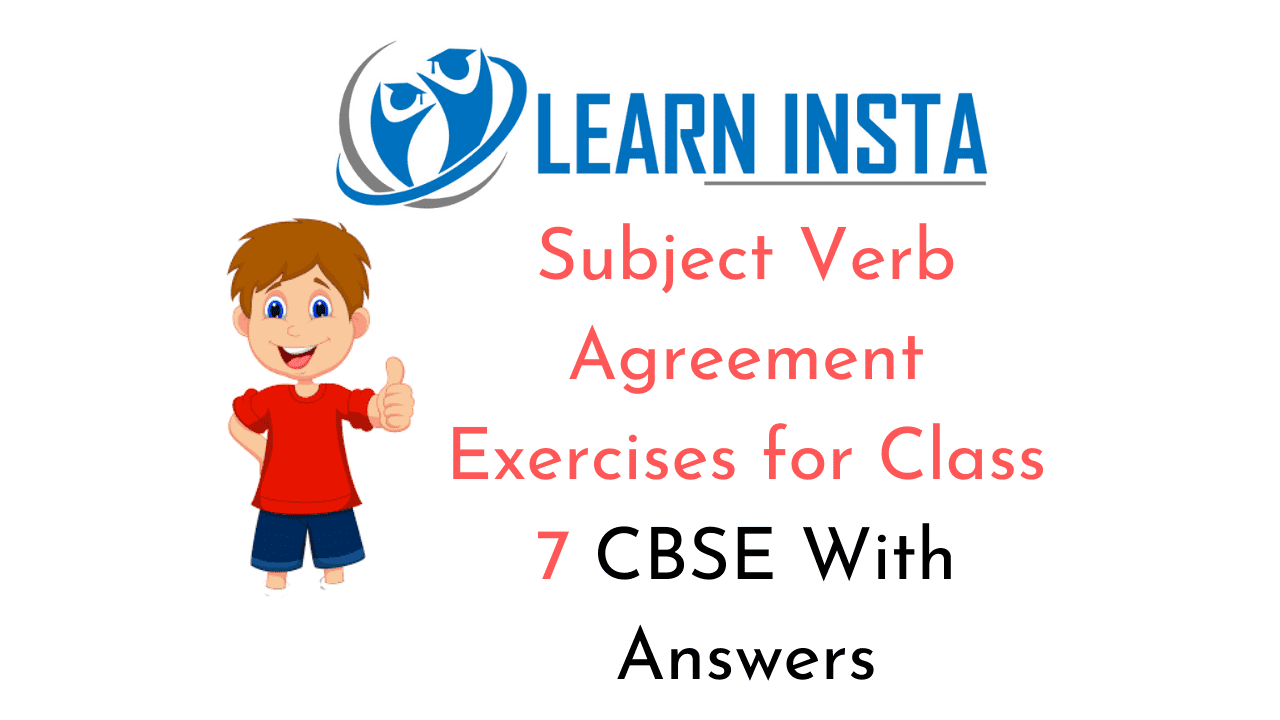
Verbs are not word denoting actions or states.
Examples:
- Mr. Hales takes the class today morning.
What does Mr. Hales do today morning?
He takes the class The action he is doing is “taking” the class.
So the action is denoted by the word “takes”. In that case that word “takes” is the verb. - The student write their examination in the Lawtey hall.
Here, the word “write” is the verb. - The university disqualified him.
Here, the word “disqualified” is the verb. - His friends refused to support him when he was in critical moments.
Here, the word “refused” is the verb.
This grammar section explains English Grammar in a clear and simple way. There are example sentences to show how the language is used. You can also visit the most accurate and elaborate NCERT Solutions for Class 7 English. Every question of the textbook has been answered here.
Subject Verb Agreement Exercises for Class 7 CBSE With Answers Pdf
The verb can be classified in different methods.
There are four types of verbs.
- Transitive verbs: A transitive verb is the verb which takes an object.
- Intransitive verb: An intransitive verb is a verb which does not take an object.
- Auxiliary verb: A verb which helps another verb to form its tense, voice or mood is called an Auxiliary verb.
- Modal verbs: The following verbs are called Modal verbs:
Shall, should, will, would, may, might, can, could, must, ought and dare are called modal verbs.

1. Transitive verbs:
Examples:
Mr. Hales takes the class today morning.
By this sentences, Mr. Hales takes the class.
Here…
The word “Mr. Hales” is the noun.
The word “the class” is the object.
The word “takes” is the verb.
Only when all the three words are there, the whole sentences becomes complete and meaningful.
In case the object word is not there, the sentence “Mr. Hales takes” conveys no meaning and the sentences does not become complete. In that case “what does Mr. Hales take?” is not clear.
So only when the verb “takes” gets an object, the meaning behind the verb “takes” becomes complete.
That means the verb “takes” needs an object to make itself complete.
Such a verb which needs an object is called transitive verb.
That means the action of the verb is transmitted to another noun or another thing.
They brought the suitcase two days back.
Here the verb “brought” (bring) needs an object to become meaningful.
What was brought?
The suitcase was brought by them.
So the verb “bring” (brought) is a transitive verb.
My father has written a book which may interest you.
We are crossing the river by a boat.
The child is reading English poems clearly,
An uncivilized man killed John Kennedy.
She created this structure for our proposed–house.
My teacher gave me a pen before I entered the exam–hall.
They sell their properties.
In all the seven sentences give above, the respective verbs “write”, “cross”, “read”, “kill”, “create”, “gave” and “sell” need their respective objects to make the sentences meaningful.
So, all these verbs are transitive verbs.
Few other “Transitive verbs” are: build, carry, begin, bear, eat, choose, eat, find, forget, feed, drink, deal, cling, give, grind, have, hold, make, ride, lend, know, learn, win, steal, weave, shut, spread etc.
2. Intransitive verbs: As stated above, an intransitive verb is the verb that does not take an object.
Examples:
- He laughed loudly.
In this sentence, the verb “laughed” does not need an object to complete the sentence.
So the verb “laugh” is an intransitive verb. - I daily wake up at 5 am.
Here the verb “wake” does not need an object for completing itself.
So the verb “wake” is an intransitive verb. - The ball fell down.
The verb “fell” (fall) is an intransitive verb. - They are sitting on their cars.
The verb “sitting” (sit) is an intransitive verb. - The river is winding through the forest.
Here the verb “winding” (wind) is an intransitive verb.
Few verbs go, fall, die, sleep etc are exclusively intransitive.
Few more “Intransitive verbs” are: swim, stand, sit, sink, smite, shine, run, rise, lie, leave, kneel, grow etc…
Notes:
1. Many Transitive verbs can be used as Intransitive verbs as well.
Examples:
- They fought their enemies. (Transitive verb).
They fought fiercely. (Intransitive verb). - He spoke the truth. (Transitive verb).
He spoke to me. (Intransitive verb). - The peon rings the bell. (Transitive verb).
The bell rings continuously. (Intransitive verb). - He walks. (Transitive verb).
The hostler walks the horse. (Intransitive verb). - Birds fly in the air. (Transitive verb).
The observatory flies balloon to study weather. (Intransitive verb). - The bulb broke. (Transitive verb).
The students broke the glass. (Intransitive verb).
Another type of verb is called “Auxiliary verb”.
3. Auxiliary verb: A verb which helps another verb to form its tense, voice or mood is called an Auxiliary verb.
Have, be (am, are, was and were) and do are usually used as auxiliary verbs, they can be used as Main verbs as well.|
Examples:
- I have few urgent works. (Main)
They have done very well in the examinations. (Auxiliary) - God is in Heaven. (Main)
He is liked by all. - The man does his work quietly. (Main)
Did he come here. (Main)
4. Modal verbs: The following verbs are called Modal verbs.
The following verbs are called Modal verbs.
Shall, should, will, would, may, might, can, could, must, ought and dare are called modal verbs.
Shall: When “shall” is used in the second or third person, it has the force of a command, a promise, a thread, determination, certainity.
- you shall not go out without my permission.
- He shall get my help.
Will: When “will” is used in thie first person, it can express (in addition to the future tense) willingness, a promise, a threat, determination…
- I will help you.
- I will be there in your wedding.
May: “May” has the force of possibility and permission. In the past tense “might” is used.
- He may come here.
- You may go now.
- I believed that he might be honest.
Can: “Can” has the force of ability and permission.
- He can do this work easily.
- She can go home.
- Everyone can learn this subject.
Must: “Must” has the force of compulsion, necessity, determination, duty, certainity of belief, inevitability.
- Everybody must attend this function.
- I must go urgently.
- I must have full freedom.
Ought: “Ought” indicated duty or moral obligation.
- You ought to be careful.
- As the secretary I ought to have attended that meeting this verb “ought” must be followed by “to”.
Need: “Need” has the force of necessity or obligation. When this verb “need” is used to mean obligation in the negative or interrogative form, ‘s’ is not added to need in the third person singular (present tense).
- She need not come here.
- It need not be white in the Shirt.
Regular-Irregular Verb
An English verb can be regular or irregular. Regular verbs form their post and past participle forms by adding.
Examples are given below-
Regular Verbs
| Present | Past | Past Participle |
| accept | accepted | accepted |
| agree | agreed | agreed |
| ask | asked | asked |
| believe | believed | believed |
| call | called | called |
| close | closed | closed |
| decide | decided | decided |
| discuss | discussed | discussed |
| end | ended | ended |
| fill | filled | filled |
| help | helped | helped |
| invite | invited | invited |
| learn | learned | learned |
| listen | listened | listened |
| move | moved | moved |
| need | needed | needed |
| play | played | played |
| walk | walked | walked |
Irregular verbs form their past and past participle forms in different ways.
There are mainly three types of irregular verbs.
Verbs in which all the three forms are the same (e.g. put – put – put)
Verbs in which two of the three forms are the same (e.g. sit – sat – sat)
Verbs in which all three forms are different (e.g. drink – drank – drunk)
Some verbs can be both regular and irregular.
Examples are:
- Burn – burnt – burnt (irregular)
- Burn – burned – burned (regular)
- Dream – dreamt – dreamt (irregular)
- Dream – dreamed – dreamed (regular)
- Lean – lent – lent (irregular)
- Lean – leaned – leaned (regular)
- Learn – learned – learned (irregular)
- Learn – learned – learned (regular)
Subject Verb Agreement Exercises Solved Examples for Class 7 CBSE
Question 1.
Choose the correct form of the verb that agrees with the subject.
(i) Either answer (is, are) acceptable.
(ii) Everyone one of those books (is, are) fiction.
(iii) Nobody (know, knows) the trouble I’ve seen.
(iv) (Is, Are) the news on at five or six?
(v) Mathematics (is, are) John’s favorite subject, while Civics (is, are) Andrea’s favourite subject.
(vi) Eight dollars (is, are) the price of a movie these days.
(vii) (Is, Are) the tweezers in this drawer?
(viii) Your pants (is, are) at the cleaner’s.
(ix) There (was, were) fifteen candies in that bag. Now these (is, are) only one left.
(x) The committee (debates, debate) these questions carefully.
Answer:
(i) is
(ii) is
(iii) knows
(iv) Is
(v) is, is
(vi) is
(vii) Are
(viii) are
(ix) were, is
(x) debates
Question 2.
Fill in the blanks appropriate forms of verb. Choose the answers from the options given in the brackets.
(i) One of my friends __________ gone to France. (has/have)
(ii) Each of the boys __________ given a present. (was / were)
(iii) Neither of the contestants __________ able to win a decisive victory. (was / were)
(iv) Oil and water __________ not mix. (does / do)
(v) He and I __________ at Oxford together. (was / were)
(vi) Slow and steady __________ the race. (win / wins)
(vii) Neither peter nor James __________ any right to the property. (has/have)
(viii) No prize or medal __________ give to the boy, though he stood first in the examination. (was / were)
(ix) Wither Mary or Alice __________ responsible for this. (is / are)
(x) Neither the Minister nor his colleagues __________ given any explanation for this. (has/have)
Answer:
(i) has
(ii) was
(iii) was
(iv) do
(v) were
(vi) wins
(vii) has
(vii) was
(ix) is
(x) have
Subject Verb Agreement Exercises Practice Examples for Class 7 CBSE
1. Choose the Correct and fill in the blanks.
(i) Everybody _________ at the clown. (laugh / laughs)
(ii) The moon _________ round the earth every 27 days. (go / goes)
(iii) The old man _________ the road slowly. (cross / crosses)
(iv) My neighbour’s dog _________ loudly. (bark / barks)
(v) I _________ basketball everyday. (play / plays)
(vi) The taste of these mangoes _________ different. (is / are)
(vii) I _________ milk everyday. (drink / drinks)
(viii) My mother _________ food. (cook / cooks)
(ix) Gulliver’s Travels _________ a famous book. (is / are)
(x) The teacher _________ the students. (teach / teaches)
2. Complete these sentences with the verb forms of the nouns in brackets.
(i) The thief tried to _________ that he was innocent. (proof)
(ii) “I _________ we will reach home soon,” said Kashi. (thought)
(iii) You will have to _________ properly if you come with us. (behaviour)
(iv) I did not _________ Shanta’s incredible story. (belief)
(v) The teachers asked me to _________ the blackboard. (cleanliness)
(vi) The children _________ loudly at the teacher’s joke. (laughter)
(vii) I use leftover bread to _________ birds. (food)
(viii) Try and _________ the hall with rangoli. (beauty)
(ix) The minister’s speech was meant to _________ the brave soldiers of the country. (glory)
(x) Please _________ of a solution to this menace. (thought)
